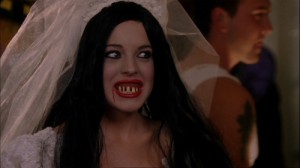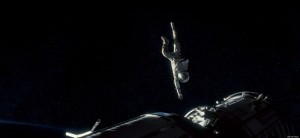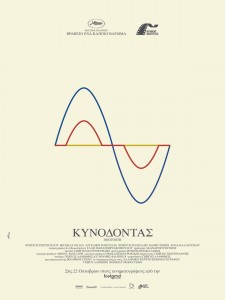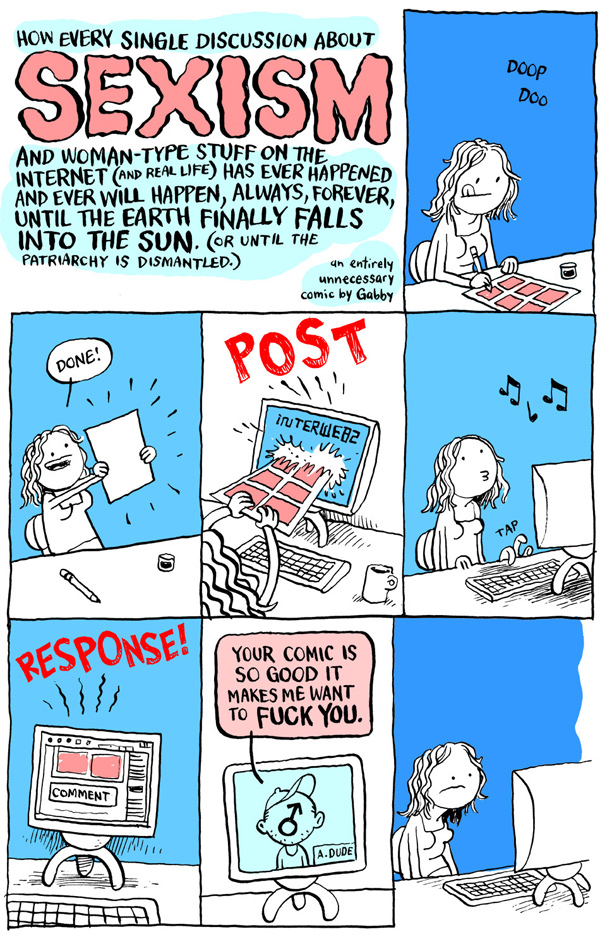MEGALOMANIA VOL I: “a beginner’s guide to elias tezapsidis”
5 ways to get elias to like you
buy him an expensive dinner, an expensive outfit, or something expensive that he would like
tell elias about yourself but don’t talk too much about yourself or elias will tune you out
never under any circumstance tell elias that he’s your second favorite person
if you call elias in the middle of the night, please have something important to say to him (i.e. elias i just bought you a super expensive outfit) or he will terminate your relationship
do not bore elias under any circumstance
jonathan franzen despises elias
jonathan franzen does not like elias for some reason. it’s probably because elias writes a lot on the internet and jonathan franzen doesn’t know how to use the internet properly
elias grew up in greece
elias was a happy child in greece. he was super popular and everyone loved him. if this is a surprise to you, then you have a lot more to learn about elias
A LOT OF READS, *IF* YOU WANT THEM
Happy Halloween, if you care!
I am going to a party for a magazine tonight. I am very excited, I think. When I described what my expectations for the party are to a friend, I simply said: “It will be very Internet.” So, I am not too sure what magazine parties are like. Do websites throw them? (When is the annual HTMLG party, Blake?)
You know who else is really into the internets right now? The Pynchon. Proof: Bleeding Edge. (Yawn, last month’s news, you know and I am sorry!!) But here, two good things on last month’s news:
Christian Lorentzen’s “In the Cybersweatshop”-Featuring delicious intro, and the incredible revelation my favorite gross/amazing dive-bar is joked about in the book (the in/famous Welcome to the Johnsons of $2 PBRs).
Joshua Cohen’s “First Family, Second Life”-the Lorentzen piece addresses the prominent role of paranoia to extreme effects in the novel. In a similar tone, Cohen recognizes the pivotal role of chance as a narrative mechanism in the book: it seems like the paranoia almost yields meaning, when chance is investigated.
Apparently, the internet is our generation’s opium, too. And it is making us dumb. Which reminds me, avoid the film Gravity, it is awful. (1/2 self-promotional, sorry!!)
You know what is NOT awful, besides “The X-files?” The soap-operaish tv-show Scandal. I think I even figured out why I like it: the key romance is “like emotional abuse.” Though my personal favorite is the comedic genius of Cyrus, which is SOO internet. It just feels amazing to watch Kerry Washington be big culturally after being a sidekick to Julia Stiles in a 90s dance movie about the struggles of whiteness. (Julia Stiles is that girl from the vodka ads, btw.)
The beauty of today, some claim, is that we are consuming a lot of trash critically or knowingly. I certainly agree, to an extent, but I certainly do not fiscally support books that are catering to that very gross internety quality. (“It shouldn’t be about the book but the money you can make from the book,” said Ruby-Strauss’s boss, Jennifer Bergstrom.)
Recently, I was talking to my friend who is going to the magazine party with me about non-internet greatness. So let us now praise famous men who are worth it, and talk about the possibility of getting a tattoo in honor of James Agee, which we actually did-sorry mom! Or let’s just embrace the art of fucking up, and think about how to do it beautifully.
Read this epistolographic piece if you might approve of my Agee tattoo. It is very good.
The interesting thing about the internet is the notion of “information” we have broadly reached. Is our understanding of “history” too skewed and subjective? Whether it (the “information”/”history”) matters (or not) and why it matters (paranoia? chance?) seems to be the key theme of all these reads, but they are only here *if* you want them.
The way people handle information defines them. Look at Paul de Man, reconsider him. Things are culturally slippery, sure, but will you buy Jenna Jameson’s new book, which she didn’t even write?

October 26th, 2013 / 8:36 pm
LOSING CANINE TEETH: IDEAS SPURRED BY A MODERN GREEK FILM THAT IS NOT ABOUT MODERN GREECE
A DISTANCE FELT
I have a friend who I like spending time with but rarely end up seeing. The friend is a good person whose time means a lot, especially when it is shared with me. We call each other difficult, but what that means is that we like to hang out when we really want to, and refuse to negotiate our visceral wants for the other. It is a circumstantial friendship, despite its organicness. A major issue that arises frequently and poses Herculean efforts on both of our ends is that the friend lives in Brooklyn. [1] Despite the physical distance, it was the friend’s turn to come to me, because last time I went to Brooklyn, and I walked the Williamsburg bridge back and forth without ever seeing the friend, because the friend was asleep and never woke up and stood me up, and for that reason the friend would have to come to me this time and this was a non-negotiable term in an unwritten legal contract.
We decided to go to an East Village staple called “Sidewalk,” which is on Avenue A, and my friend grimaced a lot with my decision, because “how 90s grunge.” What the friend was going to witness would be a surprise, because this space was renovated ala gentrification in 2011 and there were no grimey aspects of my tall burger the very attractive (in a 90s way) waitress served me as she spoke in the familiar raspy voice that exuded bits of smoke here and there. [2]
What is interesting about where we chose to sit–which of course was the eastern side that functions as the smoking section of the outdoor seating area–is that it is located exactly near a gay bar called “Eastern Bloc,” which some people say belongs to Anderson Cooper’s boyfriend. [3] It was during our meal, or actually my meal since the friend was only drinking, on the smoking sidewalk that we witnessed a peculiar verbal fight in the street, the kind of fight that is violent only because of the words involved and how they were spat by people: aggressively and malevolently. It ended with someone calling a gay person a faggot, but the shock value was only increased when the assaulter and the gay person who stepped on his sneakers because he was too distracted by his phone were separated by a larger distance. It was then that the assaulter widened his eyes and tried to cajole his audience–us–with his empowering statement as he turned around and declared to bystanders of this incident: “It’s okay. I am gay, too.” READ MORE >
Franzen v. Internet v. Love v. Iskandrian

Someone I dearly love alerted me to this op-ed which ran yesterday in the NYTimes. At the grave risk of preaching to the converted I want to say a few things about it. READ MORE >
How much time do you spend on the internet on an average day, and how much of that time is waste v. productive? (I took a sick-day today, thought I’d get a bunch of reading done. Instead, I wasted away in front of my laptop, just like any other day.)
The Future Is A Stream
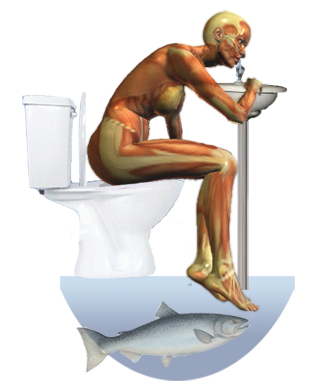
25. From which we learn that (a) making correct predictions about the technology future is easy, and (b) writers should remember to put their predictions in suitably poetic language, so it’s easy to say they were right.
25. If we think of time as orthogonal to space, a stream-based, time-based Cybersphere is the traditional Internet flipped on its side in digital space-time. The traditional web-shaped Internet consists (in effect) of many flat panels chaotically connected. Instead of flat sites, where information is arranged in space, we want deep sites that are slices of time. When we look at such a site onscreen, it’s natural to imagine the past extending into (or beyond) the screen, and the future extending forward in front of the screen; the future flows towards the screen, into the screen and then deeper into the space beyond the screen.
26. The Internet is no topic like cellphones or videogame platforms or artificial intelligence; it’s a topic like education. It’s that big. Therefore beware: to become a teacher, master some topic you can teach; don’t go to Education School and master nothing. To work on the Internet, master some part of the Internet: engineering, software, computer science, communication theory; economics or business; literature or design. Don’t go to Internet School and master nothing. There are brilliant, admirable people at Internet institutes. But if these institutes have the same effect on the Internet that education schools have had on education, they will be a disaster.
Remember Alone?
Writers:
Remember what it is to be alone?
Fifteen interviews after XXXX gets his book published by XXXXX XXXX Press. Constant promo. Constant talk. Talk about the work. ‘What brought this book out?’ ‘What were you thinking here?’
Use of words: Great, Beautiful, Amazing, Stunning, Remarkable.
After an hour of thought, I’d say that I’ve read two books that I would consider great in my proportion. Two books. I know it’s nice to be nice. That’s okay. But, please, as an excuse, do not use the ‘it’s tough to be a writer.’ No. It may feel tough, but it is not. Look around you.
To sum: I think that within the internet, writers can easily grab hold of a lot of pages and capitalize and gather attention.
Remind yourself: This is a psychic burden, this page. Is it worth it? Is it worth it for me and for the audience?
It is okay to be alone.
Have you ever said no to an interview? You can! You can, actually. It can be worth the gamble of pissing off the proposer. You don’t even need to tell them that it is because of you, because of your want to sit quietly and think, and work. Talk can be poison.
It’s a mistake for a sculptor or a painter to write or speak very often about his job. It releases tension needed for his work. –Henry Moore
It’s easy to feel the frenetic prompts that the internet–and within it the communities–create. Resist them. Action for action is not action at all. It is movement. (Marketing is often the endgame for this movement; you create burden. Burden. Think about what you want to play, what you want to ask. What you want to give. Think long term. Ten moves in chess deep long term. Anything less than that is lazy.)
Resist the movement. Revolution, now, is a withdrawal.
Remeber what it is to write. Remember the seed?
The seed is you. Alone.
This is, as it must be, as much for me as it is for XXXX. For you. For me. One in the same here.
Exclusive(ish) Report: Is Your Creativity Quietly Dying?
 Over on the New York Time’s Papercuts blog, they do this thing called Stray Questions, where they ask different authors the same three questions: what are you working on right now, what are you reading right now, and how does the internet help or hinder your work? Simple enough. Writers can blabber on and on about whateverthehell they’re reading at the moment, and some are willing to talk about their brilliant but unfinished novels, but it’s that last question that gets me. I like Geoff Dyer’s answer the best. Here it is:
Over on the New York Time’s Papercuts blog, they do this thing called Stray Questions, where they ask different authors the same three questions: what are you working on right now, what are you reading right now, and how does the internet help or hinder your work? Simple enough. Writers can blabber on and on about whateverthehell they’re reading at the moment, and some are willing to talk about their brilliant but unfinished novels, but it’s that last question that gets me. I like Geoff Dyer’s answer the best. Here it is:
It helps in all the obvious ways but mainly it hinders. Where it used to gnaw and nibble away at my ability to concentrate, now it is taking huge great chomps and I fear that soon I will have absolutely no ability to concentrate on anything, will be floundering in a state of endless distraction for the rest of my days and will never accomplish anything again READ MORE >
Sorry Benjamin Kunkel.

The insular, dramatic affirmations just don’t cut it this time.
Speaking from my experience, the internet (lowercase ‘i’) is what lead me to the serious study of literature and philosophy and history. Need I point out how many comprehensive and correct resources there are for said ‘serious’ study? I would use some more time to turn every word in the last sentence into a link for Benjamin and everyone reading this, but my severely addled ADHD brain just won’t let me. I see something shiny. Damn you, Interwebz! And that same ADHD mind is going to pass on your next article, because, hell, there’s so much more pseudo-subsumption to get to.

